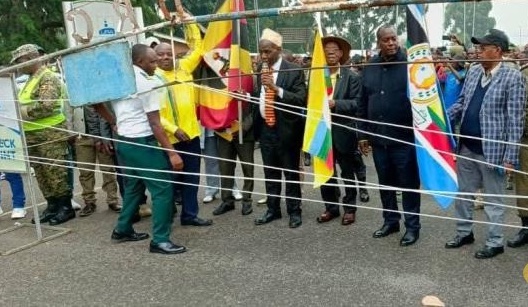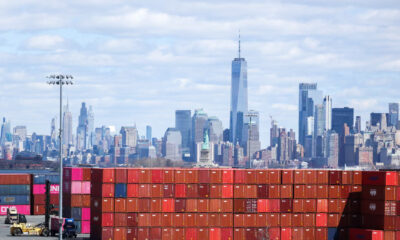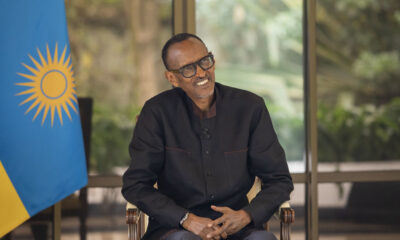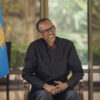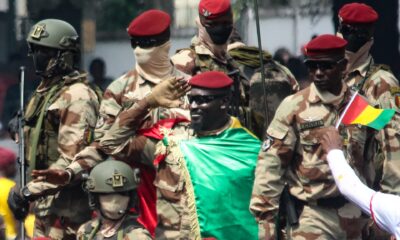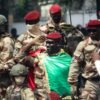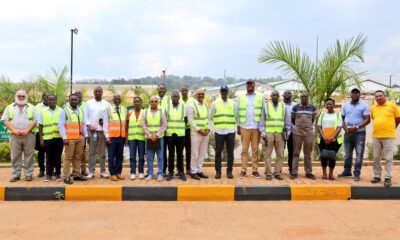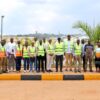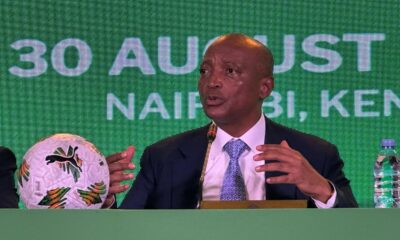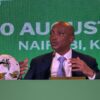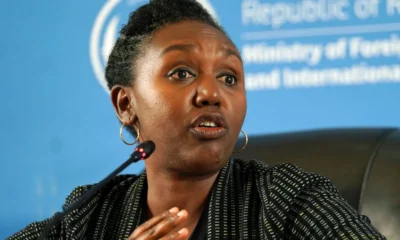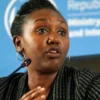Africa
Uganda Reopens Border Posts with Eastern Congo to Boost Trade and Ease Humanitarian Strain
Uganda has officially reopened several key border posts with the Democratic Republic of Congo (DRC) in areas currently under the control of the March 23 Movement (M23) rebels, ending a months-long closure that had disrupted regional trade, travel, and livelihoods along the frontier.
President Yoweri Kaguta Museveni ordered the reopening on Wednesday night, a directive that was implemented early Thursday morning, according to Uganda People’s Defence Forces (UPDF) spokesperson Brig. Gen. Felix Kulayigye.
“The president last night indeed ordered the reopening of the border posts, and indeed this morning the Bunagana border post was reopened,” Kulayigye told the press.
The affected border crossings include Bunagana, Ishasha, and Busanza—entry points that had been closed since late January following the M23 rebels’ capture of Goma, the capital of North Kivu Province in eastern DRC.
Following the president’s directive, Chief of Defence Forces Gen. Muhoozi Kainerugaba issued instructions to military commanders stationed along the border to allow the free movement of people and goods.
“Nothing should stop people from trading,” said Col. Chris Magezi, UPDF Deputy Spokesperson, in a statement released early Thursday. He confirmed that Gen. Muhoozi specifically named Bunagana and Ishasha as key crossings to be reopened immediately.
The re-opening was marked by a joint ceremony at the Bunagana border post, attended by Ugandan and Congolese officials. Hajji Badru Ssebyala, the Resident District Commissioner of Kisoro, and Kisoro District LC5 Chairperson Abel Bizimana led the Ugandan delegation. From the Congolese side, Bunagana Mayor Désiré Kanyamarere represented the local administration.
The reopening of the borders has been welcomed by communities on both sides, who have suffered economically since cross-border trade and transport were suspended.
Kisoro’s Abel Bizimana hailed the move as a victory for ordinary citizens.
“Our people can now resume visits to friends and family, and more importantly, restart the businesses that had come to a standstill,” he said.
Mayor Kanyamarere praised President Museveni’s leadership, describing the decision as a lifeline for communities that rely heavily on cross-border commerce.
“This closure suffocated our people’s incomes. We thank President Museveni for this humane decision,” he said.
M23 President Bertrand Bisimwa also issued a statement welcoming the reopening and thanking Museveni.
“Let us thank His Excellency Yoweri Museveni, President of the Republic of Uganda, for his decision to reopen all border posts with Eastern Congo. This is a mark of responsible leadership that places the people at the centre of all political action,” said Bisimwa.
The move comes amid a volatile and evolving situation in eastern DRC. Since June 2022, M23 rebels—under the leadership of Bertrand Bisimwa and military commander Emmanuel Sultan Makenga—have gained control over large swathes of North and South Kivu provinces, including strategic locations such as Goma city, Bukavu, Goma International Airport, and Kavumu Airport.
While the DRC government has labelled all areas under M23 control as illegal, the rebels maintain that their struggle is aimed at ending corruption, xenophobia, and systemic discrimination in Congolese governance. The DRC has also repeatedly accused neighbouring Rwanda of backing the M23—a charge both Rwanda and the rebel group deny.
Despite the fragile security environment, Uganda’s decision to reopen its borders appears to be driven by the urgent need to restore livelihoods, improve regional commerce, and facilitate humanitarian access in the troubled region.
Analysts say the reopening signals a pragmatic shift by Uganda to engage with de facto authorities in eastern DRC, without formally recognising the M23. It also positions Kampala as a regional actor committed to peace through economic cooperation, even as it navigates complex alliances and diplomatic tensions.
Meanwhile, Uganda has relocated some immigration and customs services back to the Bunagana post from the Uganda–Rwanda Chanika border, where they had been temporarily transferred following the 2022 fall of Bunagana to rebel forces.
As border activity resumes, officials on both sides have pledged to prioritise security and coordination to prevent potential abuses or exploitation of the reopened crossings.
For residents of Kisoro and neighbouring Congolese towns, the reopening offers a glimmer of hope after years of violence, displacement, and economic isolation.
“I can finally return to trade with my Congolese customers,” said Nzeimana Daniel, a Ugandan trader who sells agricultural supplies near Bunagana. “We’ve waited for this moment for too long.”
While the future of eastern Congo remains uncertain, Uganda’s latest move underlines the delicate balance between diplomacy, trade, and the pursuit of stability in one of Africa’s most volatile regions.
Comments



